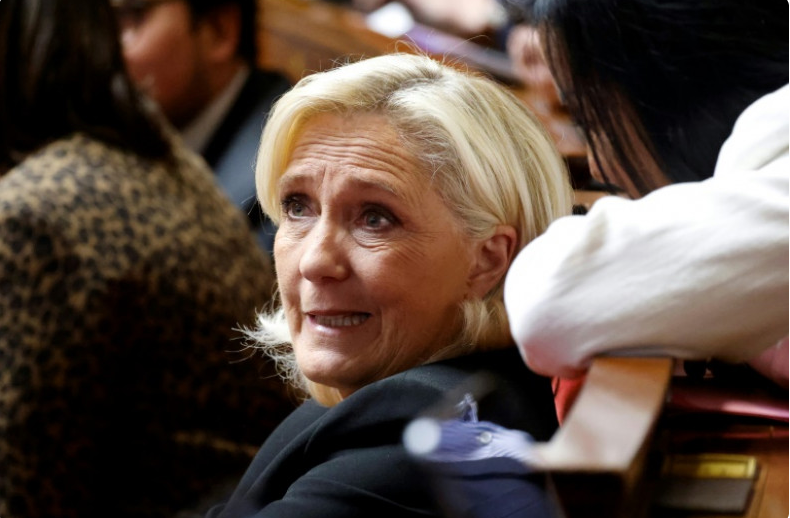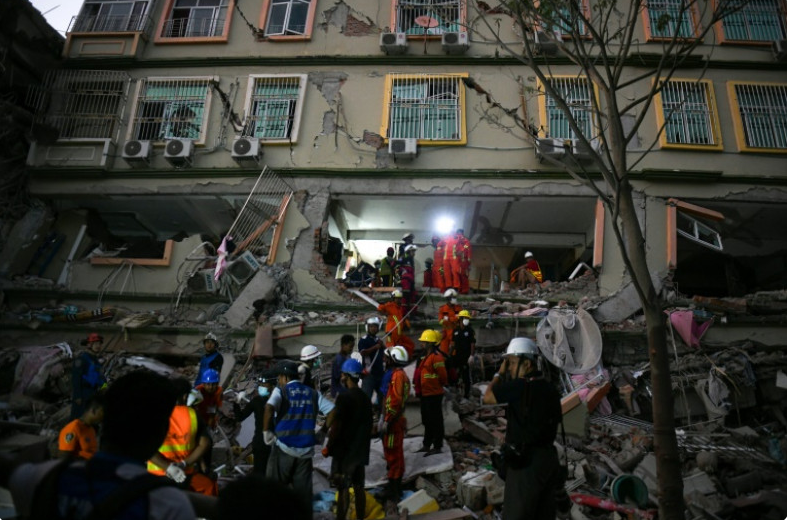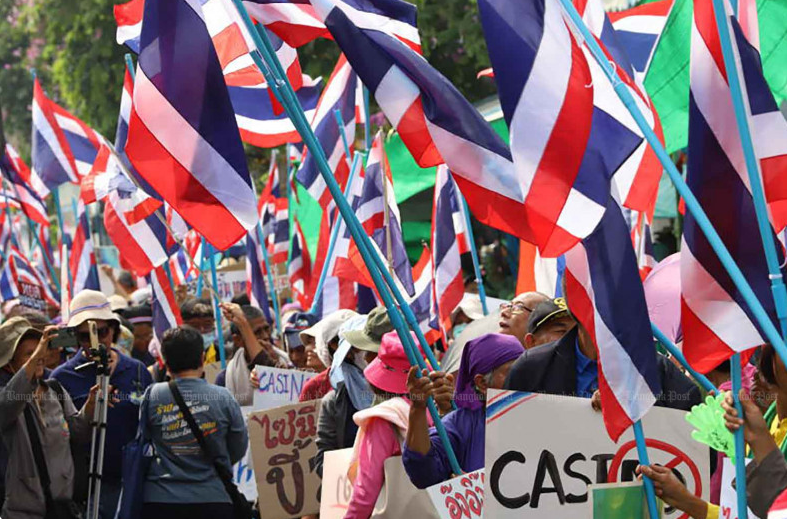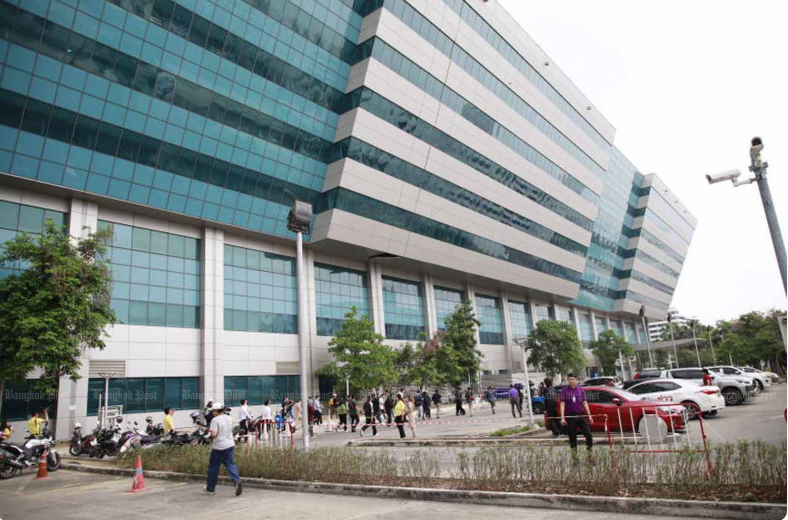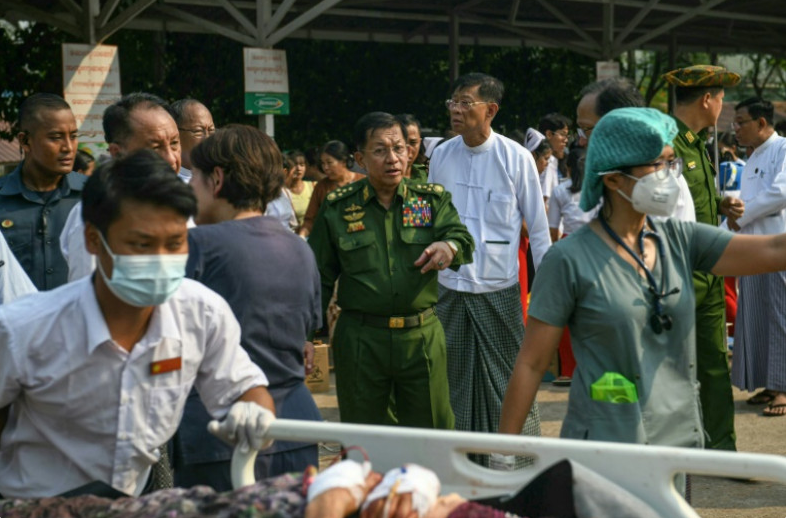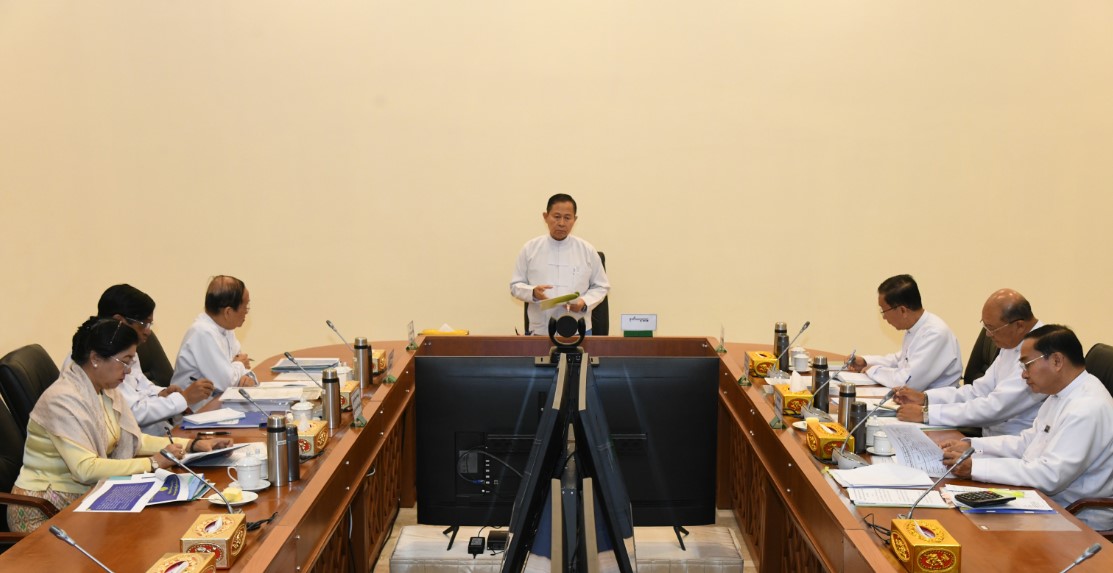The Vice Chairman of the State Administration Council Deputy Prime Minister Vice- Senior General Soe Win delivered a speech of attending the coordination meeting on the scrutiny of the Union budget for 2025-2026 fiscal year.
This afternoon, a coordination meeting on scrutinizing the Union budget for the 2025- 2026 fiscal year was held at the meeting hall of the SAC Chairman Office in Nay Pyi Taw.
The Vice Chairman of the Finance Commission, the Vice Chairman of the State Administration Council Deputy Prime Minster Vice-Senior General Soe Win attended and addressed.
Present at the meeting were U Ko Ko, chairman of the Union Election Commission, Union Ministers U Win Shein, Dr. Charlie Than and Jeng Phang Naw Taung, the Auditor General of the Union Dr. Khin Naing Oo, Deputy Minister U Min Htut and officials. Union-level dignitaries and Union Ministers, the Nay Pyi Taw Council Chairman, Deputy Ministers and officials participated via video conference.
The Vice-Senior General Soe Win delivered a speech at the meeting, explaining that it was called to conduct and decide on the scrutiny of the Union budget estimates for the 2025-2026 fiscal year. It also encompasses the budget estimates of the Union, Regions and States, as well as those of Union organizations and ministries, prior to submitting these to the chairman of the Finance Commission.
The state has to see that every financial year the budget is framed without going above the 5% of deficit over GDP. A review of estimates in the recently presented budget for the 2024-2025 fiscal year reveals that many ministries and organizations associated with generating state revenue failed to meet targets for a variety of reasons.
There are also some unnecessary expenditure requests and proposals of projects based on the assumption that they can be done. The general surplus of the state was noted to normally arise only at the end of the fiscal year. This is mainly because of the project implementation not being completed, the inability to start certain projects for a variety of reasons and the unspent funds being returned.
Thus, GDP is computed from revenue and expenditure. We hope you are comparing the ratio of deficit to toGDP, as this formula always holds, unless it is capital – and in that case, it will affect the GDP and the economy only till the time you are not consuming a portion of the income as you will be utilizing everything as an expenditure. But if spending the necessary ministries is possible in advance so that the projects and activities are done, then the GDP of these ministries is increased. This is not a trivial matter. This the Head of State instructed, when leading the Finance commission (2/2024) meeting, saying, The budget must be scrutinized and we will not tolerate irresponsible expenditure Some requests are superfluous, some are for contingency, and some are for funds where the associated projects cannot be carried out. Thus, by careful examination of these demands, they would be able to also cut down the initial budget considerably. I would like ministries and union organizations to analyze and bring up budget requests depending on projects that must be financed and those that do not.
The new Industrial Development Commission, Electricity and Energy Development Commission, and Agriculture and Livestock Development
Work with commissionkey drivers of the country’s economic growth
ministries created by the Prime Minister to invigorate the economy, causing significant additional outlays. Also, the excess revenues will be distributed to the relevant ministries (as required) that will contribute to the GDP by a substantial amount===>Attributes of the war.
Increases in state revenue will follow increases in GDP. Thus, while submitting original budget estimate and revised estimate at Union level in future the organizations and ministries should submit the same only after calculating and verifying the actual needs. According to the Pre-Screening Committee and officials, if we tell them about this 7.04 percent deficit to GDP ratio according to the revenue-expenditure budget, initially the ministries reported that it was at this level.
The Ministry of Planning and Finance confirmed there was a 6.56 per cent deficit to GDP ratio on the two departments and three committees it oversees. On this, it has been further examined by the Deputy Minister and the team and it is 5.85 percent. Then the Deputy Prime Minister and the Union Minister for Planning and Finance examined it and found out that it was 5.24 percent of GDP as deficit.
The Pre-Screening Committee Chairman and key ministries reviewed the compulsory expenditures jointly at the final phase and the GDP on a budgeted basis was evaluated after removing the expenditure of the projects considered not to be necessary from the budget plan for FY 2025-2026. This has the effect of bringing the deficit to GDP ratio down to 4.74 percent of the deficit. Depending on the need, the amount in this fund, which will not exceed 5 pct of the deficit-to-GDP ratio, could be delivered to the related ministries for the newly founded three commissions and other necessary support matters.
Moreover, the budget should provide an allocation to cover the costs of natural disaster damage preparation and maintenance, social protection as well as education and health spending. (2) Those who have obtained approval on the projects of the preliminary screening commission, the Prime Minister may issue additional instructions as required to implement projects for the development of the national economy, so precautions should be taken to allow for that approval. So I’d like to request ministries and organizations to submit more comments, if any, on the revenue and expenditure budget for the 2025-2026 FY,” he said.
Afterwards, the Union Minister and Secretary of the Commission U Win Shein clarified the status of verification of the Union’s budget for the 2025-2026 FY, the Union budgets submitted by departments and organizations for the fiscal year, the status of the ministries’ allocation to meet foreign exchange and tax revenues to be received in the fiscal year, the Deputy Minister U Min Htut and explained the status of the preliminary verification of the Union’s budget for the 2025-2026 FY to the Secretary of the Auditor General of the Union, Dr Khin Naing Oo, explained the processes to be carried out for the audit of the budgets of the Union.
Subsequently, governing Union Ministers and person in charge of off Union-level institutions made product presentations by department and agency in accordance with the relevant responsibilities, and Secretary of Financial Commission carried out supplementary discussion.
So Win, Vice-Senior General Soe Win, Vice Chairman of the Financial Commission, Vice Chairman of the State Administration Council and Deputy Prime Minister conducted the discussions and called for ministries to only submit requests for expenditure only after systematic scrutiny. It also requires ministries and organizations to ensure they can fully secure all existing funds and be used efficiently to avoid wastage, and then the meeting was ended.

